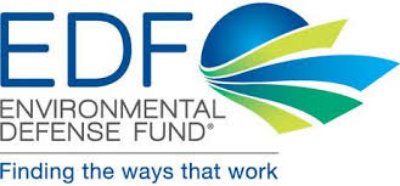Environmental Defense Fund (EDF) and Stanford University’s Natural Gas Initiative have invited 11 organizations, covering 12 different technologies, to the controlled testing phase of the Mobile Monitoring Challenge (MMC), a competition to advance mobile methane monitoring technologies at oil and natural gas facilities
Researchers and MMC cosponsors EDF and Stanford, along with ExxonMobil, Schlumberger and other industry advisers, reviewed dozens of proposals from five countries and a range of businesses – from start-ups to Fortune 500 companies – as well as academia. The leak detection technologies selected for the study are deployed via trucks, drones and planes.
“Developing innovative solutions will be instrumental in reducing methane emissions,” said Sara Ortwein, president of ExxonMobil affiliate XTO Energy. “The Mobile Monitoring Challenge lays the groundwork to leverage novel and cost-effective technologies that could help companies find and manage emissions in a faster, more efficient way.”
“The strong and diverse technology applications confirm that there is tremendous potential for surveying oil and gas infrastructure quickly and effectively,” said Isabel Mogstad, project manager at EDF+Business. “Collaborating with industry and technologists accelerates even better, faster, cheaper solutions for detecting and quantifying methane emissions.”
The 11 organizations selected to participate in controlled field testing this spring include:
- ABB Los Gatos (drone)
- Advisian (drone)
- Aeris Technologies (truck)
- Baker Hughes (drone)
- Ball Aerospace & Technologies Corp. (plane)
- Bluefield Technologies (truck)
- Heath Consultants (truck)
- Kairos Aerospace (plane)
- Picarro (drone)
- SeekOps, Inc. (drone)
- University of Calgary (truck and drone)
“The oil and gas industry accounts for about a third of all methane emissions in the United States,” said Adam Brandt, assistant professor of energy resources engineering at Stanford. “The low price of natural gas reduces financial rewards for finding and fixing leaks, so we need mobile, low-cost and fast detection systems.”
Stanford’s Natural Gas Initiative will design and administer field testing in two locations:
- Most drone and truck-based systems will be tested April 9 – 13 and May 7 – 11 at Colorado State University’s Methane Emissions Technology Evaluation Center in Fort Collins, Colorado.
- Aircraft-mounted systems and select drone and truck systems will be evaluated May 21 – 25 through independent controlled methane releases by Rawhide Leasing in Sacramento, California.
Stanford researchers will evaluate technologies for their ability to quickly detect and roughly quantify methane leaks of various sizes. Results of the controlled trials will be published in peer-reviewed journals and used to inform product improvements.
By 2019, the challenge aims to have oil and gas industry leaders piloting the most promising technologies in various operating conditions, leading to broad commercial use.
Statements from Mobile Monitoring Challenge participants:
“There’s an enormous opportunity for utilization of unmanned aerial systems for detection and characterization of methane emissions in the oil and gas sector,” said Andrew Aubrey, Ph.D., Founder and CEO at SeekOps, Inc. “At SeekOps, we have realized this opportunity by applying our innovative technology, which originates from our work at the NASA Jet Propulsion Laboratory, to localize and quantify methane emissions efficiently and accurately for our customers.”
“There’s a revolution happening in the gas sensing technologies world,” added James Scherer, Ph.D., CEO at Aeris Technologies, Inc. “Mobile methane detection is the next frontier for the oil and gas industry, and we look forward to demonstrating the accuracy of our laser-based analyzer.”
# # #
Environmental Defense Fund (edf.org), a leading international nonprofit organization, creates transformational solutions to the most serious environmental problems. EDF links science, economics, law and innovative private-sector partnerships.
The Natural Gas Initiative (ngi.stanford.edu) is an industrial affiliates program that supports interdisciplinary research at Stanford on how to use natural gas for its greatest social, economic and environmental benefit.


what are the results